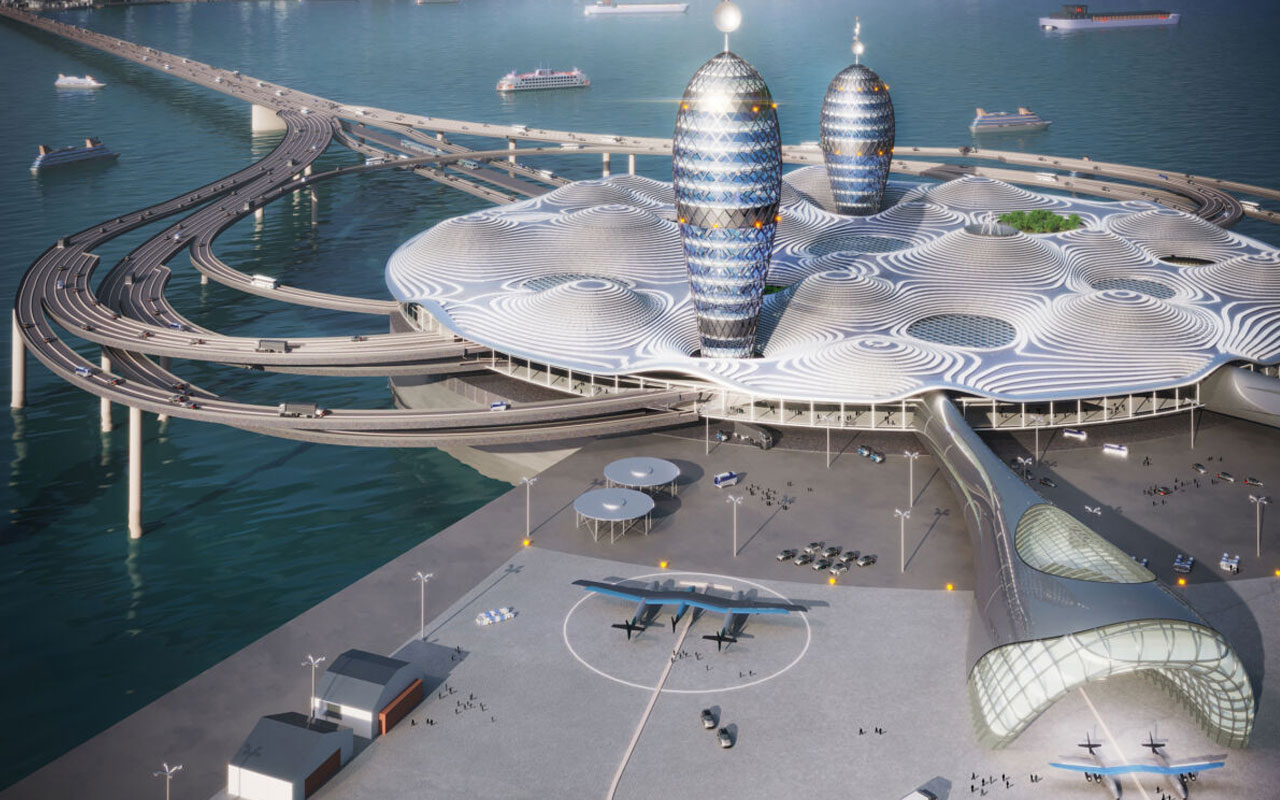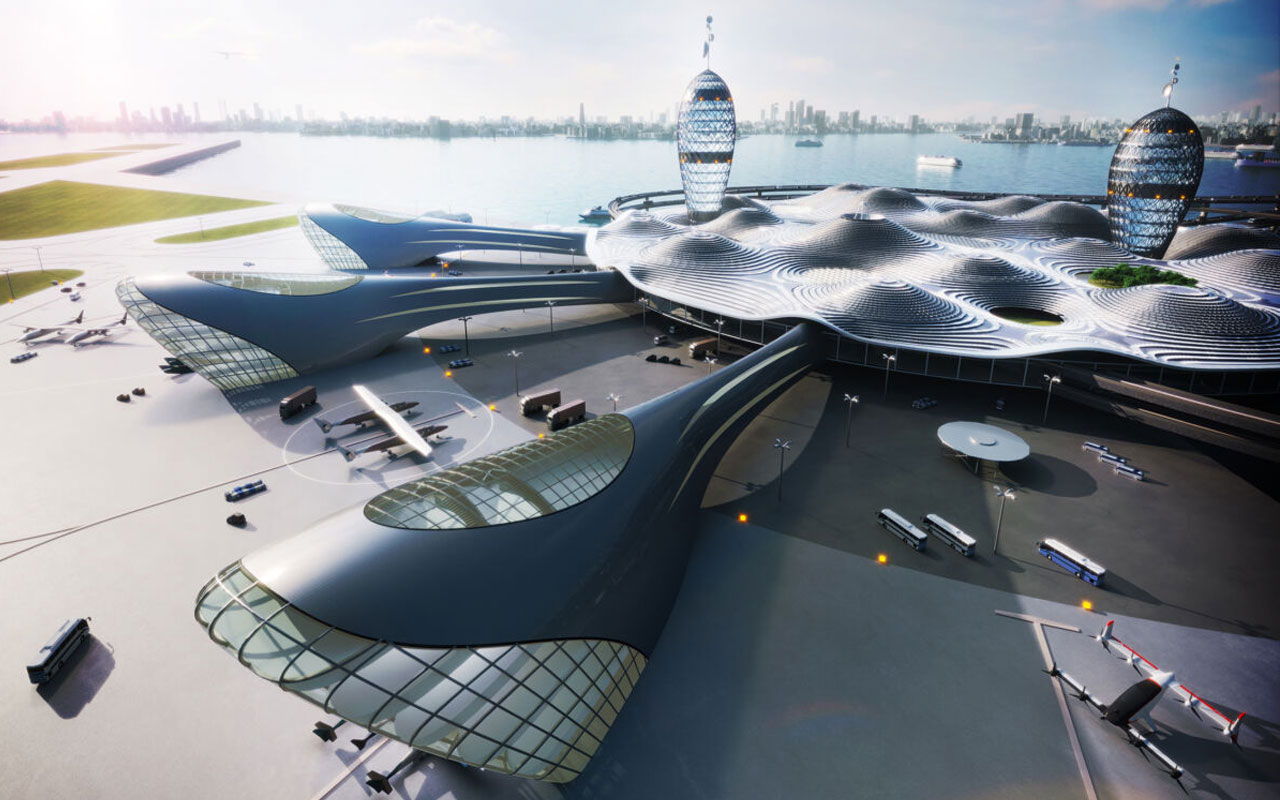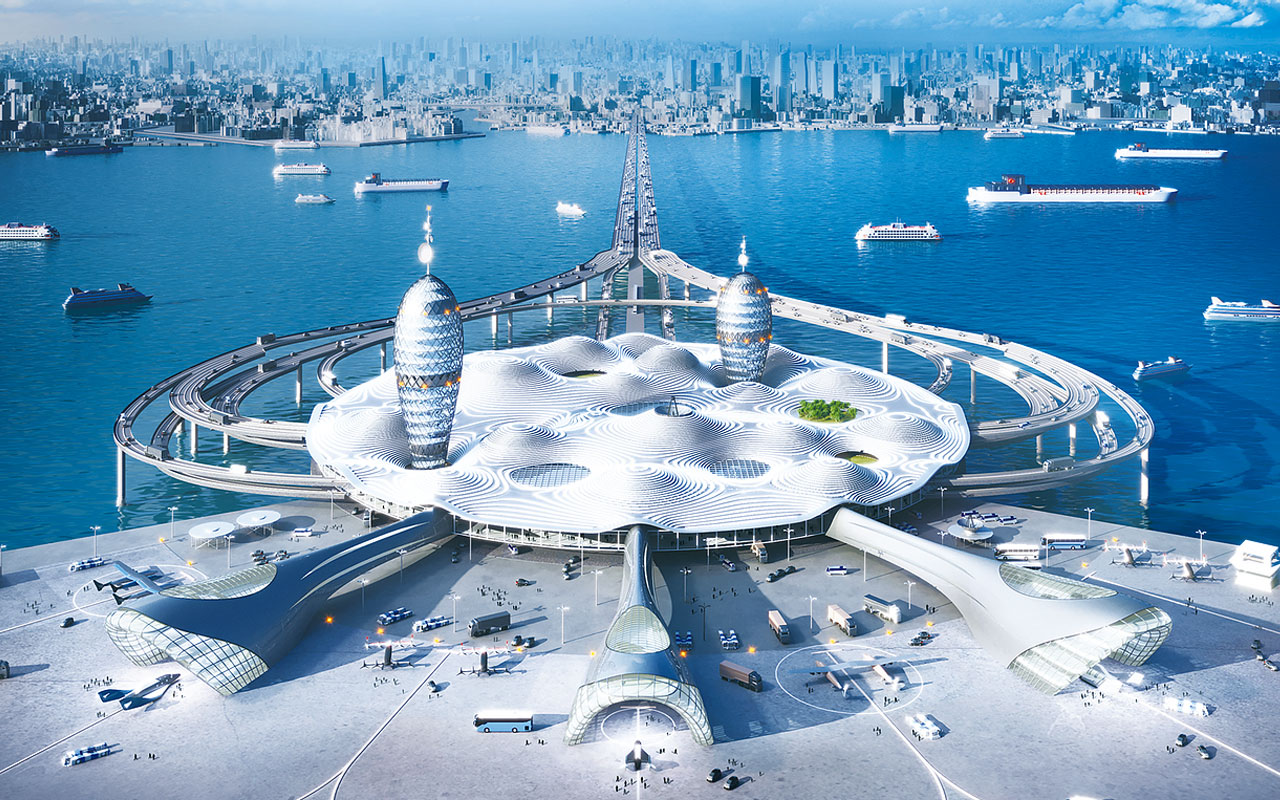Space travel has been a stuff of sci-fi novels and movies; but with the advancement of science and technology, private sector companies are competing to materialize interstellar travel for masses. Regardless of the time it will take to achieve that goal, the world will need a transportation hub that would act as a connection point between earth and space.
Envisioning that hub, Noiz Architects has designed the Spaceport City to act as a center for futuristic space travel. Initiated and released by Space Port Japan Association, Dentsu, and Canaria; the project would serve as a connecting point between earthly and space travel. Besides that, Spaceport City will act as an education center for people to learn more about space and space travel.
Spaceport City

Spaceport City is a new kind of transportation hub that is primarily dedicated to space travel. It connects the traditional means of transportation with commercial space shuttle operation, but also act as a knowledge center, encompassing all functions associated with deep space discovery and profound learnings about it.
The city will host majority of events such as space fashion shows to international conferences, research, and business regarding space. Scientists and researchers will be allowed to come to the city to pursue their own endeavors. This space education and tourist precinct will also feature space-focused art museums, space gyms and pools, a 4D space-focused theater, a broadcast studio, restaurants, hotels, and business facilities.
Ethereal design

The practical infrastructure including hangers, maintenance facilities, air/space traffic control, terminals and training facilities for travelers make an ethereal design. Spaceport City has been imagined as a huge floating platform in Tokyo Bay, connected to the mainland by a bridge. A huge multi-level plaza and two cylindrical towers house many amenities above, with three large terminals for space flights and related runways needed.
Noiz Architects has designed a separate spherical building for each function of the city. The roofs of each of these buildings would be equipped with kinetic solar panels to provide power. In addition to the plaza, the buildings have distinct spaces for patios and open-air gardens.
The estimated cost for space travel has been set at US$250 million per seat; making it unlikely for the space industry to become a big hit among people in the short-term – but Spaceport Japan says that the space industry is expected to become a trillion-dollar market by 2050.



